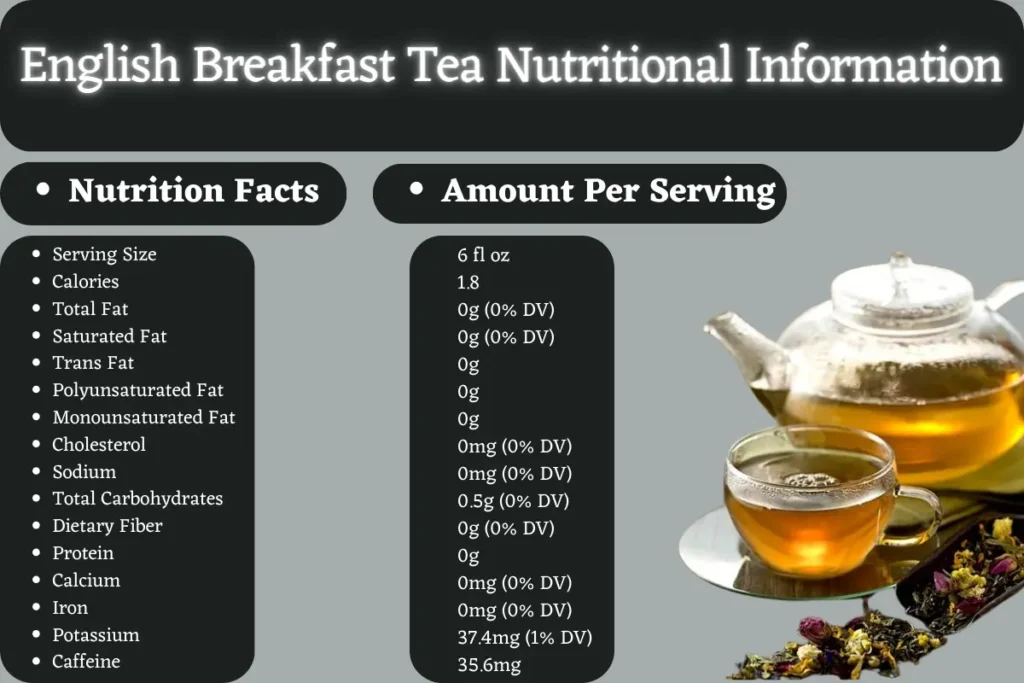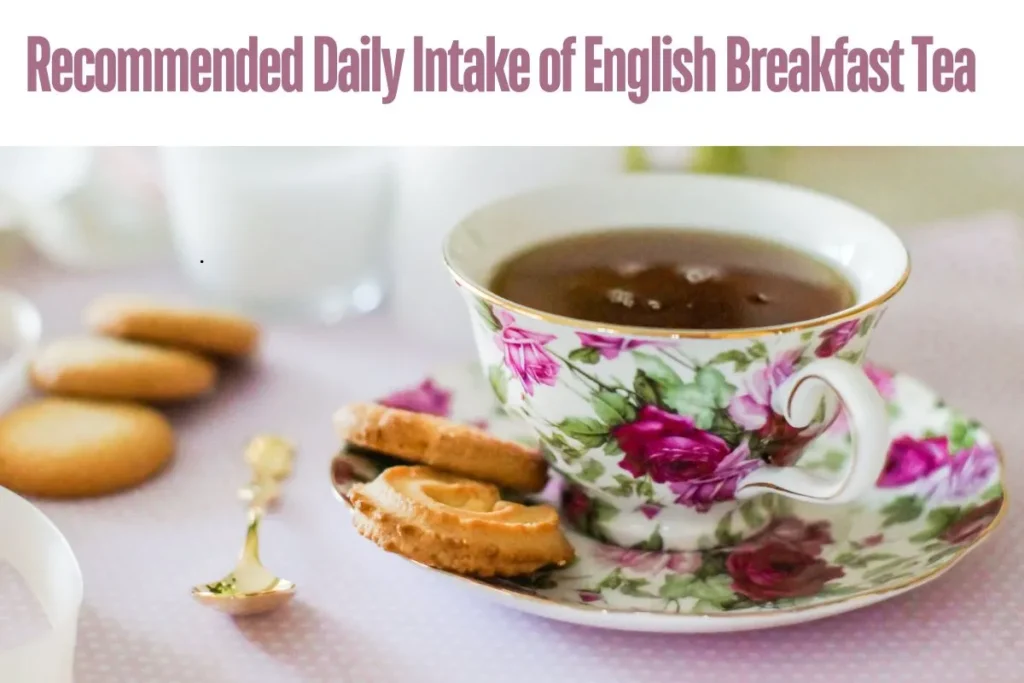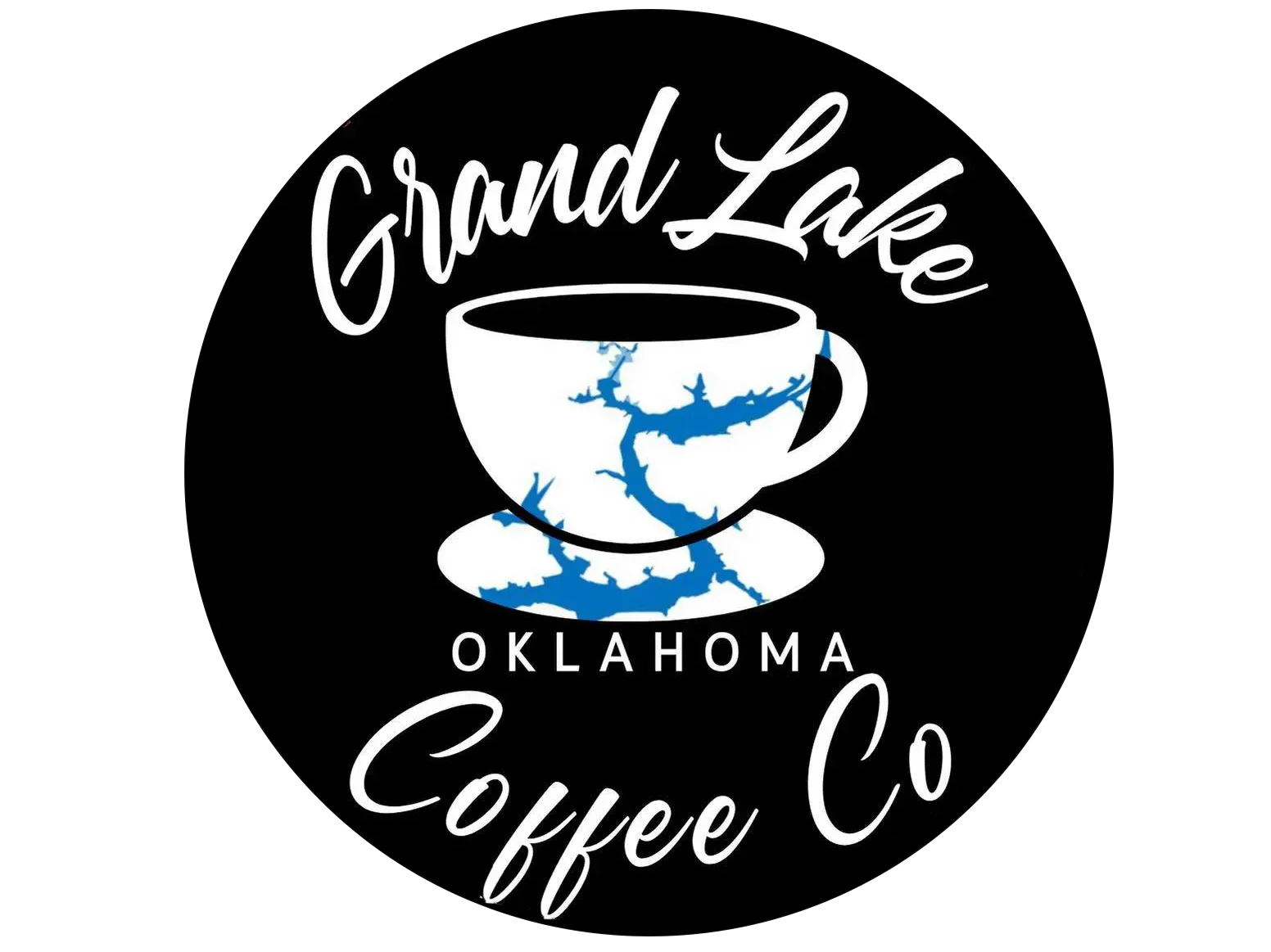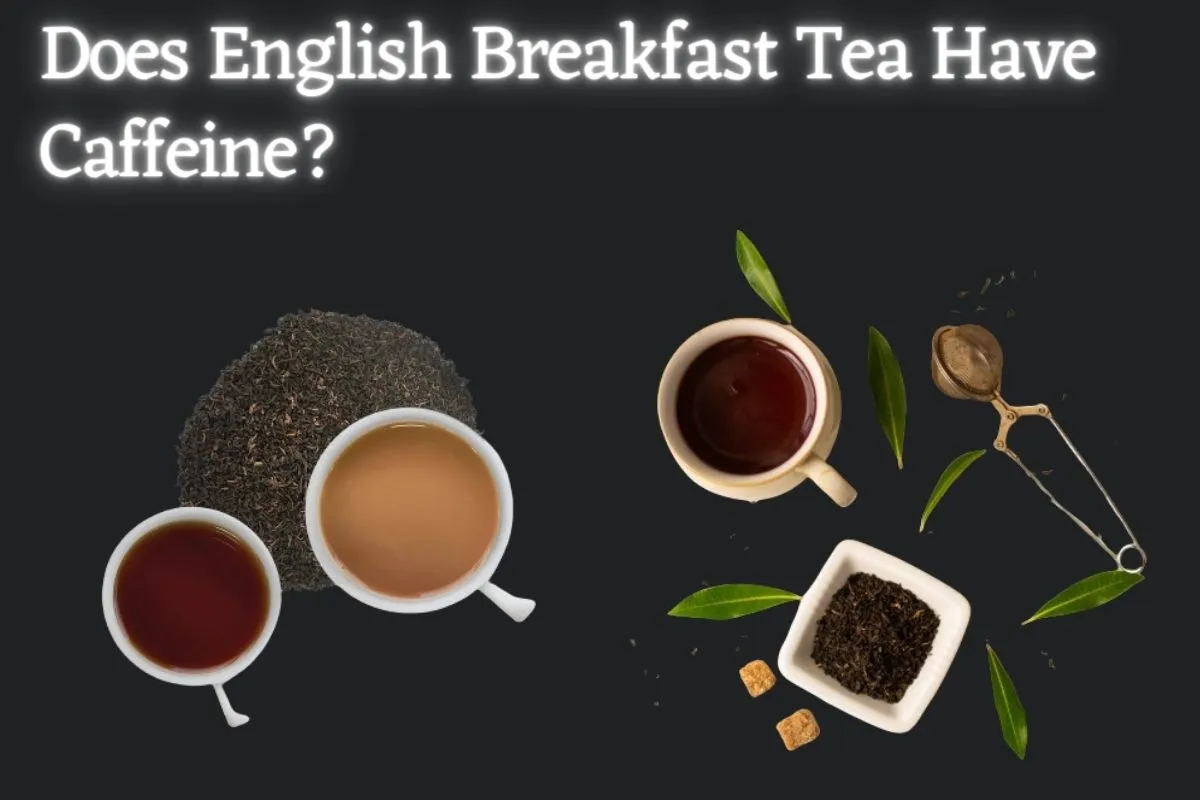While sipping a rich cup of English Breakfast Tea might feel like a centuries-old British custom, the truth is this beloved blend is a relatively recent invention. This popular tea emerged in the 19th century as a way to give people a robust and flavorful way to start their day.
Its strong, malty taste was designed to complement the hearty foods of a traditional English breakfast. But along with that bold flavor, a question lingers – does English Breakfast Tea have caffeine? If so, how much of a boost will that morning cup really provide?
Importance of Knowing About English Breakfast Tea
English Breakfast Tea, a robust blend of black teas, enjoys widespread popularity both globally and nationally, revered for its rich flavor and revitalizing properties.
Traditionally consumed in the morning, this tea offers a hearty start to the day, though many savor it throughout for its comforting warmth and stimulating effects. The appeal of English Breakfast Tea transcends cultural and geographical boundaries, making it a staple in the routines of countless individuals worldwide.
However, English Breakfast Tea does offer a moderate caffeine boost. Knowing its caffeine content helps people manage their energy levels throughout the day.
The caffeine content in English Breakfast Tea can vary significantly due to several factors, including the blend of black teas used, the growing conditions of the tea plants, and the brewing time and temperature. Typically, the longer and hotter the tea is brewed, the higher its caffeine content will be.
Specific individuals might need to be mindful of their caffeine consumption. Those sensitive to caffeine, pregnant women, or people with certain medical conditions may need to limit or avoid English Breakfast Tea due to its caffeine content.
Does English Breakfast Tea Have Caffeine?
No, traditional English Breakfast Tea is not caffeine-free. It is made from black tea leaves, which naturally contain caffeine. Black tea, like green tea and white tea, comes from the Camellia sinensis plant. This plant naturally produces caffeine.
English Breakfast Tea usually contains around 30-60 milligrams of caffeine per cup, depending on brewing methods and tea origins. While less than coffee, this is still a moderate amount.
If you’re looking for a caffeine-free version, decaffeinated English Breakfast Tea options do exist. However, keep in mind that the decaffeination process cannot remove all caffeine, so trace amounts usually remain.
English Breakfast Tea Variants and their Caffeine Content
English Breakfast tea is a classic blend, but there are many variations you can explore! Here are some popular varieties:
Irish Breakfast Tea
This close cousin of English Breakfast usually offers an even more robust and malty flavor. Assam teas form the backbone of this blend, often leading to a slightly higher caffeine content than a traditional English Breakfast.
Scottish Breakfast Tea
Scottish Breakfast teas take the bold flavor profile even further. They heavily feature Assam teas, and some blends might include a touch of smoky Chinese Keemun tea for added depth. Expect a strong, full-bodied cup with a higher caffeine kick.
Earl Grey
While technically not a pure breakfast tea, Earl Grey is one of the world’s most beloved black tea variations. Its distinct flavor comes from the addition of bergamot oil, a fragrant citrus fruit. Earl Grey generally has a caffeine content similar to English Breakfast Tea.
Decaffeinated English Breakfast
For those seeking to reduce their caffeine intake, decaffeinated options exist. While not entirely caffeine-free, these versions remove most of the caffeine through a decaffeination process. Expect a much milder caffeine impact compared to standard English Breakfast.
Flavored English Breakfast Blends
Tea companies often get creative, adding flavors like vanilla, fruit, or spices to an English Breakfast base. While the additional ingredients don’t inherently change the caffeine content, they can add exciting flavor dimensions to your morning cup.
List of Ingredients in English Breakfast Tea
The following components are frequently present in English breakfast tea, though the precise mix may differ based on the brand or manufacturer:
- Assam Tea Leaves: Assam tea leaves, originating from the Assam region of India, are known for their robust flavor and rich, malty notes. They contribute to the bold and full-bodied character of English Breakfast Tea.
- Ceylon Tea Leaves: Ceylon tea leaves, sourced from Sri Lanka, add brightness and complexity to English Breakfast Tea. Known for their brisk and lively flavor profile, Ceylon tea leaves balance the blend and enhance its overall taste.
- Kenyan Tea Leaves: Kenyan tea leaves, prized for their strength and depth of flavor, are often included in English Breakfast Tea blends.
- Other Black Tea Varieties: In addition to Assam, Ceylon, and Kenyan tea leaves, English Breakfast Tea blends may also include other varieties of black tea to achieve a well-rounded flavor profile. These may include teas from regions such as China or Indonesia, each adding their unique characteristics to the blend.
- Optional Flavorings: While traditional English Breakfast Tea is made solely from black tea leaves, some variations may include optional flavorings or additives for added depth or complexity. Common flavorings may include bergamot (in Earl Grey blends), vanilla, or spices like cinnamon or cardamom.
- Natural or Artificial Flavor Enhancers: Some commercially packaged English Breakfast Tea blends may contain natural or artificial flavor enhancers to intensify the tea’s taste or aroma. These additives are typically used in small quantities and comply with regulatory standards.
- No Additives (Pure Tea Blends): Many purists prefer English Breakfast Tea blends made solely from pure black tea leaves without any additional flavorings or additives.
English Breakfast Tea Nutritional Information

A typical serving of English Breakfast Tea is naturally very low in calories, containing only about 1.8 calories per 6-fluid ounce cup. It has zero fat (in all its forms), no cholesterol, and negligible amounts of sodium. You’ll find around half a gram of carbohydrates in a cup, but no dietary fiber.
English Breakfast Tea doesn’t offer any protein, calcium, or iron. On the plus side, it provides a small amount of potassium (about 1% of your daily value). Finally, English Breakfast tea does contain caffeine, with an average serving having approximately 35.6mg.
| Nutrition Facts | Amount Per Serving |
| Serving Size | 6 fl oz |
| Calories | 1.8 |
| Total Fat | 0g (0% DV) |
| Saturated Fat | 0g (0% DV) |
| Trans Fat | 0g |
| Polyunsaturated Fat | 0g |
| Monounsaturated Fat | 0g |
| Cholesterol | 0mg (0% DV) |
| Sodium | 0mg (0% DV) |
| Total Carbohydrates | 0.5g (0% DV) |
| Dietary Fiber | 0g (0% DV) |
| Protein | 0g |
| Calcium | 0mg (0% DV) |
| Iron | 0mg (0% DV) |
| Potassium | 37.4mg (1% DV) |
| Caffeine | 35.6mg |
Alternatives to English Breakfast Tea and their Caffeine Content
If you’re looking to explore the world beyond English Breakfast Tea or manage your caffeine intake, here’s a wider variety of alternatives and some information on their caffeine levels:
Irish Breakfast Tea
This delivers a more robust, malty flavor than its English cousin and offers slightly higher caffeine content (typically a bit above the 30-60mg range of English Breakfast). Think of it as the bolder sibling of English Breakfast.
Scottish Breakfast Tea
For those craving an intensely flavorful cup, Scottish Breakfast packs the biggest punch with its heavy reliance on Assam tea. This means the highest caffeine content among the traditional breakfast blends (could easily exceed 60mg per cup).
Chai Tea
A classic spiced delight! Black tea blended with warming spices like ginger, cinnamon, cloves, and cardamom creates a rich and flavorful option. The caffeine levels will vary depending on the specific chai blend and how much black tea is used (can range from low caffeine to approaching that of English Breakfast).
Rooibos Tea
This South African herbal tea is a caffeine-free gem. It has a naturally sweet, earthy flavor with hints of caramel and vanilla, making it an excellent base for flavorful variations.
Fruit and Herbal Infusions
The world of caffeine-free teas is vast and delicious! Explore options like chamomile for relaxation, peppermint for a refreshing kick, and a wide array of fruit blends for vibrant flavor adventures.
Yerba Mate
Yerba Mate, not a traditional tea but a South American beverage, boasts about 80mg of caffeine per cup. It offers a distinct earthy, grassy flavor profile that many find energizing and pleasant.
Guayusa Tea
Another caffeinated option hailing from South America, guayusa provides a smoother and slightly sweeter alternative to yerba mate. Think of it as the gentler, more approachable cousin of yerba mate. It contains about 70mg of caffeine per cup.
| Tea Type | Caffeine Content |
| Irish Breakfast Tea | 40mg per 6 fl oz serving |
| Scottish Breakfast Tea | Exceeds 60mg |
| Chai Tea | 47.4mg per 238g serving |
| Rooibos Tea | Caffeine-free |
| Fruit and Herbal Infusions | Caffeine-free |
| Yerba Mate | 80mg per cup |
| Guayusa Tea | 70mg per cup |
Recommended Daily Intake of English Breakfast Tea

A typical serving of English Breakfast Tea (6 fl oz) contains approximately 35.6mg of caffeine. To understand what this means for your daily intake, consider that the Recommended Daily Intake (RDI) of caffeine for healthy adults is 400mg. Consuming one cup of English Breakfast Tea therefore provides roughly 8.9% of this recommended daily limit.
This tea offers a moderate caffeine boost, making it a good choice for those seeking a bit of an energy kick without the overwhelming effects of stronger caffeinated beverages like coffee or energy drinks. If you’re managing your caffeine consumption, keep in mind that multiple cups of English Breakfast throughout the day can quickly add up, so it’s important to factor this into your overall intake.
Conclusion
This beloved morning drink offers a moderate caffeine boost, making it a popular way to start the day with a bit of extra energy. The exact amount of caffeine in your cup can vary due to factors like brewing time and the origin of the tea leaves, but generally, you can expect a stimulating effect.
If you enjoy the rich flavor of English Breakfast Tea, indulge with the knowledge that you’re getting a small caffeine kick as well. However, those sensitive to caffeine or seeking caffeine-free options might want to explore the many delicious alternatives available in the world of tea.
FAQs
Q1: What is in an English breakfast tea?
English Breakfast Tea is a blend of black teas, traditionally featuring Assam tea from India for its malty base, Ceylon tea from Sri Lanka for bright notes, and Kenyan tea for added complexity. Sometimes, Chinese Keemun tea is included for a touch of smoky sweetness. Each brand has their own variation on this classic blend.
Q2: Is English breakfast tea drunk with milk?
Yes, it’s very common to enjoy English Breakfast Tea with milk and sometimes sugar. Its robust flavor profile holds up well to these additions, making for a classic breakfast beverage. However, it’s perfectly enjoyable on its own as well.
Q3: Is English breakfast tea the same as normal tea?
While English Breakfast falls under the broader category of “normal tea” (meaning tea made from the Camellia sinensis plant), it differs from many other tea varieties. Its specific blend of black teas provides a signature richness and strength not found in lighter styles like green tea or white tea.
Q4: Why do people drink English breakfast tea?
English Breakfast Tea enjoys immense popularity due to its bold flavor, making it a satisfying morning drink. It also contains caffeine, providing a moderate energy boost as people start their day.
Q5: Is English Breakfast Tea a stimulant?
Yes, English Breakfast Tea acts as a stimulant due to its natural caffeine content. This is one of the reasons it’s frequently chosen as a way to wake up and feel more alert.

Rossi Glover, the passionate Owner of Grand Lake Coffee, infuses every cup with her love for coffee and dedication to quality. With an extensive background in the art and science of coffee, Rossi is not just a connoisseur but a storyteller, sharing the intricate tales behind each brew.

